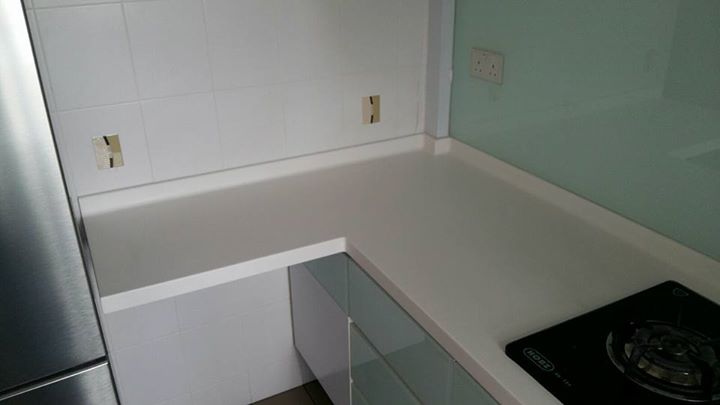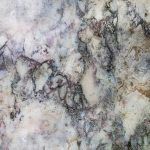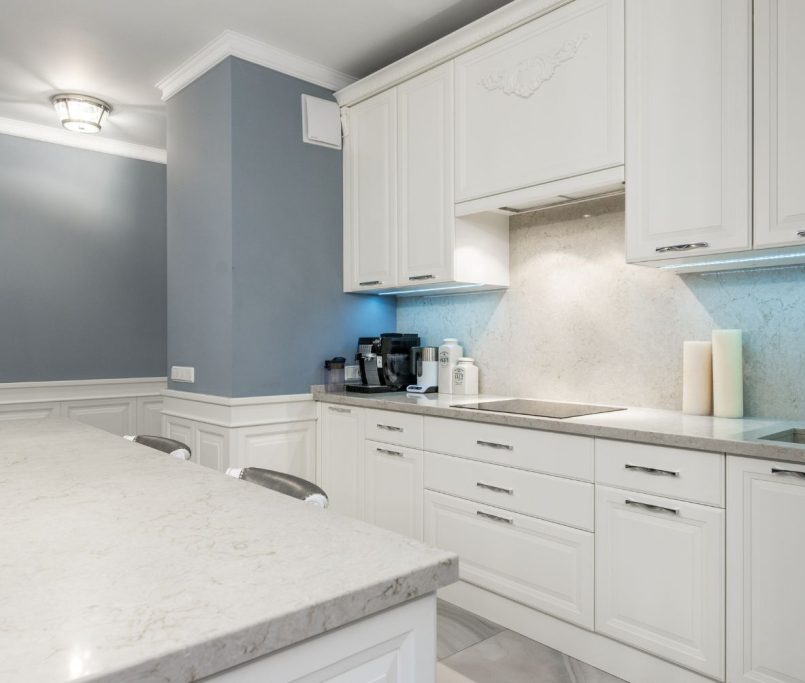Solid Surface Countertops, Natural Stone Countertops or Engineered Stone Countertops: Which one is for you?
Solid Surface Countertops, Natural Stone Countertops or Engineered Stone Countertops: Which One is Best For You?
Choosing a surface type for your new kitchen countertop is something that, for many of us, could be a lifelong decision. What are the different types of surface materials available? How do they differ? Which surface type would suit your needs?
Solid Surface
Solid surface countertops are made from synthetic materials, usually out of acrylic or polyester. From a practical point-of-view, solid surface materials make a lot of sense and are a popular choice for new homes especially in Asia. These surfaces are synthesized specifically to address major concerns regarding durability, hygiene and design in mind. Solid surfaces are a great alternative to natural stone and typically come in acrylic and polyester.

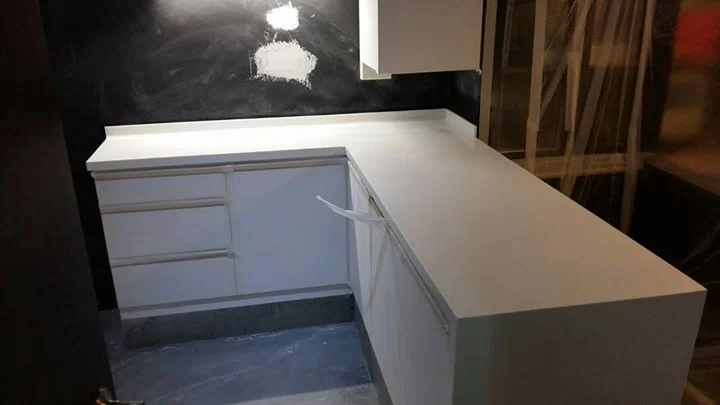
Characteristic/Feature | How it affects things: |
Non-porous | Pores are tiny openings over a surface which can be conducive spots for bacteria and other microorganisms to grow. Being non-porous means that solid surfaces are easier to keep clean and hygienic. The absence of pores also do not trap stains and is easy to clean with soap, water and cloth. |
Versatile in design | Solid surfaces can be sanded and shaped into a wide variety of designs. Solid surfaces can be cut and joined in various configurations, which is a designer’s dream. Can be built in different orientations; horizontally or vertically. |
Durability | More durable to impacts compared to natural stone due to its flexibility. Its softer surface is susceptible to cuts from knives. Granite stone is more resistant to heat and chemicals than marble. |
Ease of repair | Light scratching and surface damage can be fixed with fillers. Entire portions can be cut out and replaced with new parts, and its uniform look (unlike irregular features of natural stone) makes it easy to blend in the replacement parts. |
Cost | Expensive and comparable to natural stone. |
Aesthetics | Many regard solid surfaces as lacking in the looks department compared to natural stone. |
Still need a second opinion on which countertop is best for you? Contact Jasmine at +65 8100 5992 or email us at [email protected].
[vc_btn title=”GET INSTANT QUOTE TODAY” color=”warning” size=”lg” align=”center” css_animation=”bounceIn” link=”url:https%3A%2F%2Fwww.stoneamperor.com.sg/instant-countertop-quote||target:%20_blank|” css=”.vc_custom_1526456146325{padding-top: 20px !important;}”]
Natural Stone
Natural stone is a heavy, slab of rock cut and fashioned from large blocks from stone quarries. When considering natural stone, people love its beauty. Traditionally used in building solid and long-lasting countertops, notable examples of natural stone include marble and granite. Images of the Parthenon come to mind when we think of marble works and its association with grandeur.
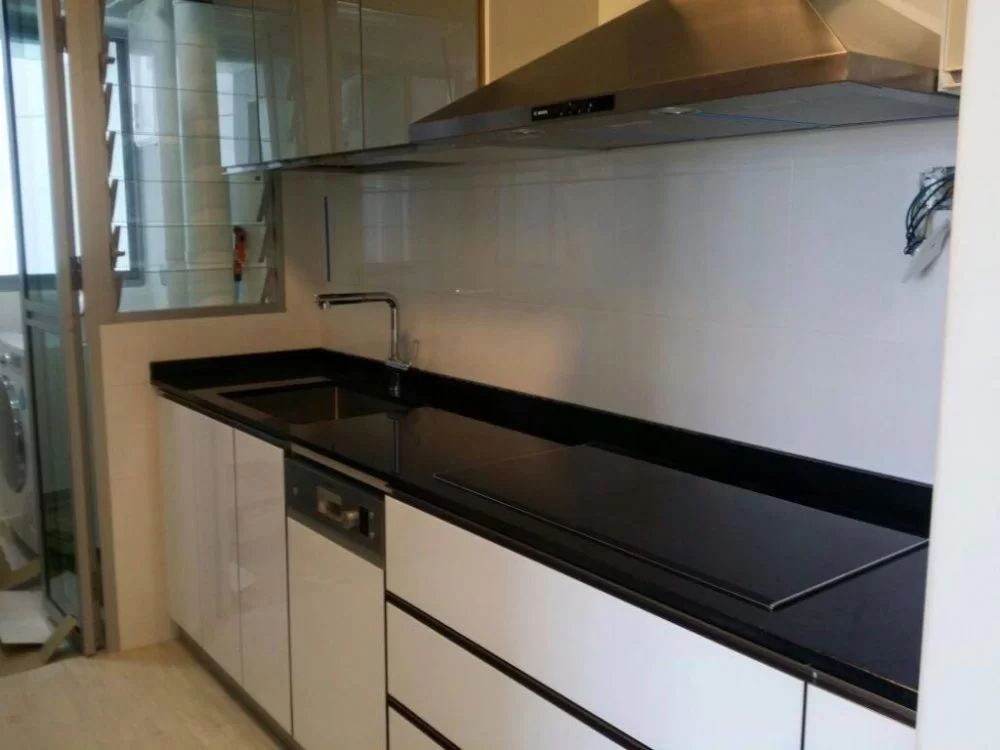

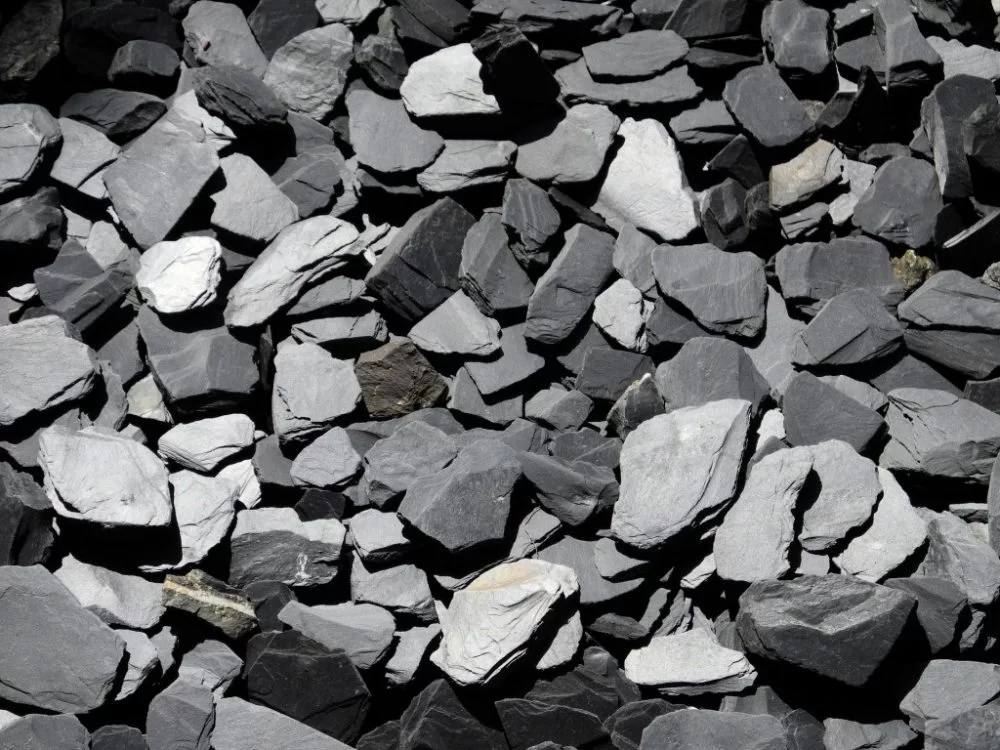
Characteristics/Features | How it affects things: |
Porous | Natural stone contains small pores that, if not treated with sealant, are a hygiene hazard as it traps bacteria and dirt. It is easy to clean when properly treated with sealant. Reapply sealant every few years, or sooner as needed. |
Less versatile | Solid blocks of stone are, as it is, set in stone. Seams will be very noticeable where two pieces of stone come together. |
Durability | While very hard, natural stone is inflexible and brittle making it vulnerable to impacts and massive temperature fluctuations. Its hard surface, however, makes it very resistant to cuts and scratches from knives. |
Ease of Repair | Again, set in stone, natural stone is nearly impossible to repair. Depending on the severity of the damage, entire pieces would need replacing. The harder the stone is, the more difficult it is to repair. |
Cost | Expensive. More so if you need to repair it. |
Aesthetics | Widely regarded for its beauty. Aside from its patterns, cool look and glow, each slab of natural stone is unique and no two pieces are ever alike. |
Quartz Stone
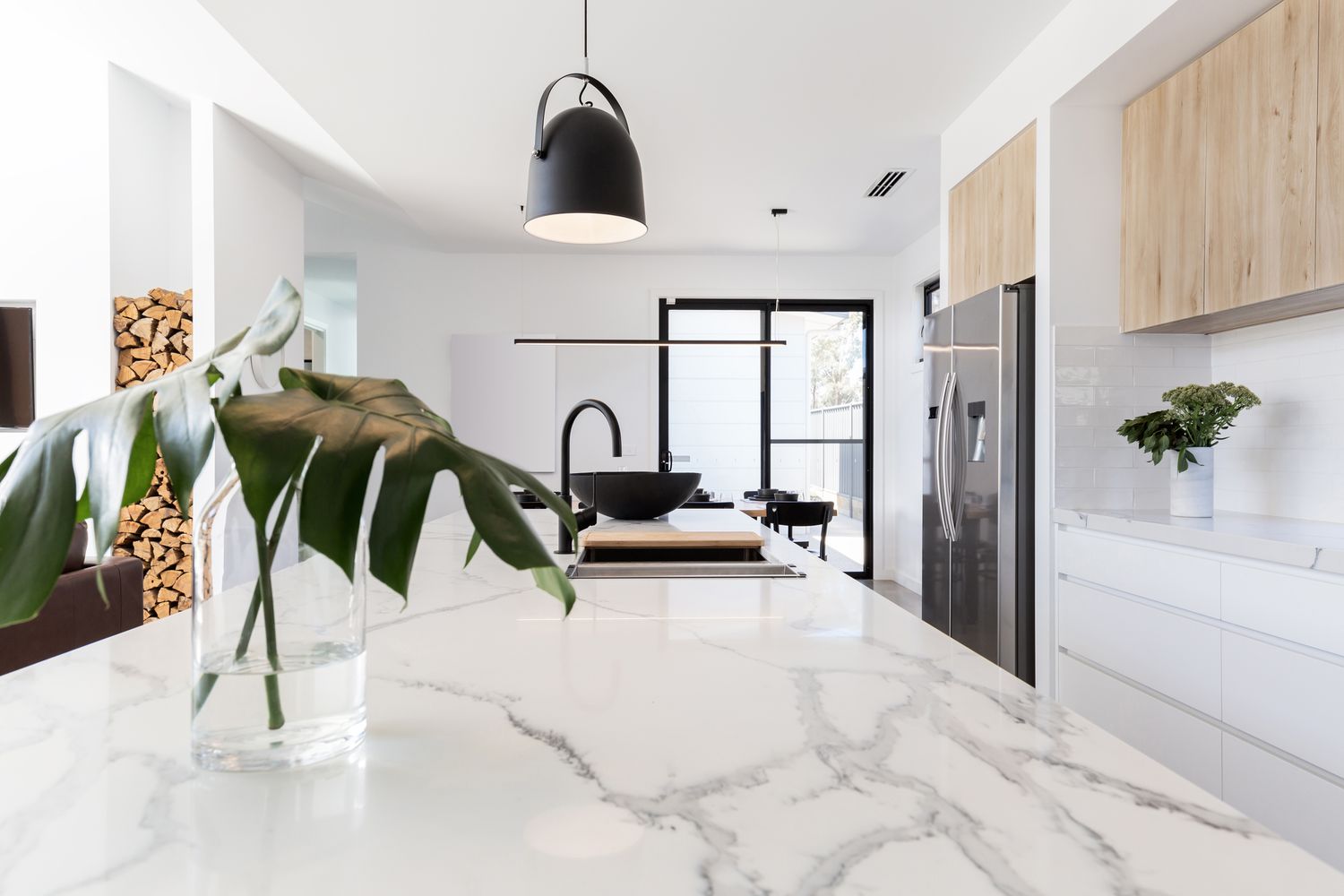
Not to be confused with its naturally occurring relative, quartz in countertop design are fabricated, yet retaining some of the aesthetics and durability that we associate with natural stone, with a few minor differences.
Surprisingly, Quartz stone shares many similarities with natural stone. For one, it boasts a hardness of 7 on the Mohs Hardness scale (granite is 6-7, depending on its mineralogy) making it very resistant to cuts or scratching with sharp metal implements. Therefore, it will dull your knives instead! Quartz has a melting point of 1670°C (granite is 1215 – 1260°C) and is non-porous. Besides, the resin used to hold the quartz together isn’t as flame resistant, so it would be advisable not to place hot objects directly on its surface.
Quartz does discolour when exposed to sunlight. However, with darker colours, quartz stone can be put together in such a way that the seams are minimally visible.


